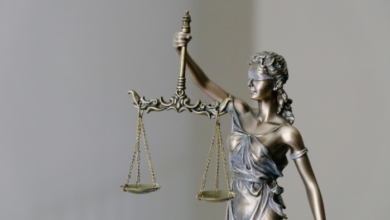How Can Social Media Affect the Outcome Of Your Wrongful Death Case?

In today’s world, posts on social media can influence a wrongful death case. This means that you and the opponent in court can easily access anything you post on social media, including pictures, messages, and posts. If you are upset with a loss and considering filing a lawsuit, be cautious when using social media. Anything you post could be misinterpreted, which could harm your case. It is best to consult a Port St. Lucie wrongful death lawyer to manage your social media during this period.
Evidence Collection:
Tons of information can be found on social media accounts, and it is possible to use them in court. You and the other side can retrieve any posts, pictures, and messages you post on social networks in a wrongful death lawsuit. This information can be used to your advantage or disadvantage, depending on the circumstances.
For instance, if you are suing because your loved one died in a car accident and you post pictures of yourself at a party right after the death, it could be used by the other side to challenge your claim of sorrow. This is because the posts shared on social media are considered part of how the person feels. The other side might argue that these posts do not conform to how you think about your loss.
Misinterpretation of Posts:
It is common knowledge that posts on social media platforms are short and often not well articulated. This can be confusing, especially when addressing something delicate, such as grief. The brief message you write about feeling happy can be perceived by others, particularly the other party in the lawsuit, as a sign of discontent with the loss.
For example, if your message is “Feeling good today!” it may be interpreted that you are not concerned with the death of a loved one. One must consider how these posts may be interpreted by other people, especially when grieving the loss of a loved one. You might even consider staying off social media for some time if it is difficult to regulate your emotions during this trying period.
Damage to Your Credibility:
Social networks can be helpful and damaging to your credibility as a person suing in a wrongful death lawsuit. It can also be used to demonstrate to the court that you are genuinely mourning and how much the deceased meant to you. It can also be used to harm your credibility if you post things that are contrary to the things you claim in court.
For instance, if you say that you are facing financial issues because your loved one died, but you post selfies in expensive locations, it might make people doubt your financial difficulties. Such an inconsistency makes you look like you are not telling the truth or cannot be believed by the court.
Privacy Concerns:
Social media platforms let you control your privacy settings to some degree. However, these settings are not always perfect, and the other side could see information you think is private in a lawsuit. Lawyers have different ways to find information online, and social media profiles are a prime target.
Be careful about what you share online, especially sensitive information related to the death of your loved one or your financial situation. While social media can be a great way to connect with others, finding a balance between openness and privacy is essential, especially during a legal case.
Emotional Outlet:
It is good to grieve the loss of a loved one through social media. It can help you find people in a similar situation or experiencing the same emotions. When looking for support during this stage, it is possible to turn to another supportive online community. Of course, one should be cautious when using social networks as an emotional outlet.
Emotions can make you do things you wouldn’t normally do, like posting something on the internet that you later regret. Before you click the ‘post’ button, it may be wise to take time and reflect on your emotions. It also risks sharing too many negative emotions, which could paint a wrong picture of you in your case.
Impact on Jury Selection:
In some wrongful death cases, attorneys may use social media to decide which jurors to select. They can search for jurors who appear to empathize with you or those who could be prejudiced against you due to your online conduct. For example, if your social media page reflects your political stance, contrary to the political sentiment within the community, it may affect the perception of potential jurors towards you.
Although it is impossible to avoid how jurors utilize social media, being conscious of social media presence will reduce the possibility of unfavorable jury selection. It may be helpful to look at your profile and delete any posts that look provocative or unrelated to the case.
Conclusion
Social media can be both helpful and harmful to your wrongful death case. Because of this, you must be very careful about what you share online. Anything you post can be collected and used in court by either you or the other side. This means you should avoid posting anything emotional or confusing that could be misunderstood. Talk to your lawyer if you’re unsure whether something is okay to post. They can advise you on managing your social media accounts during this difficult time.




